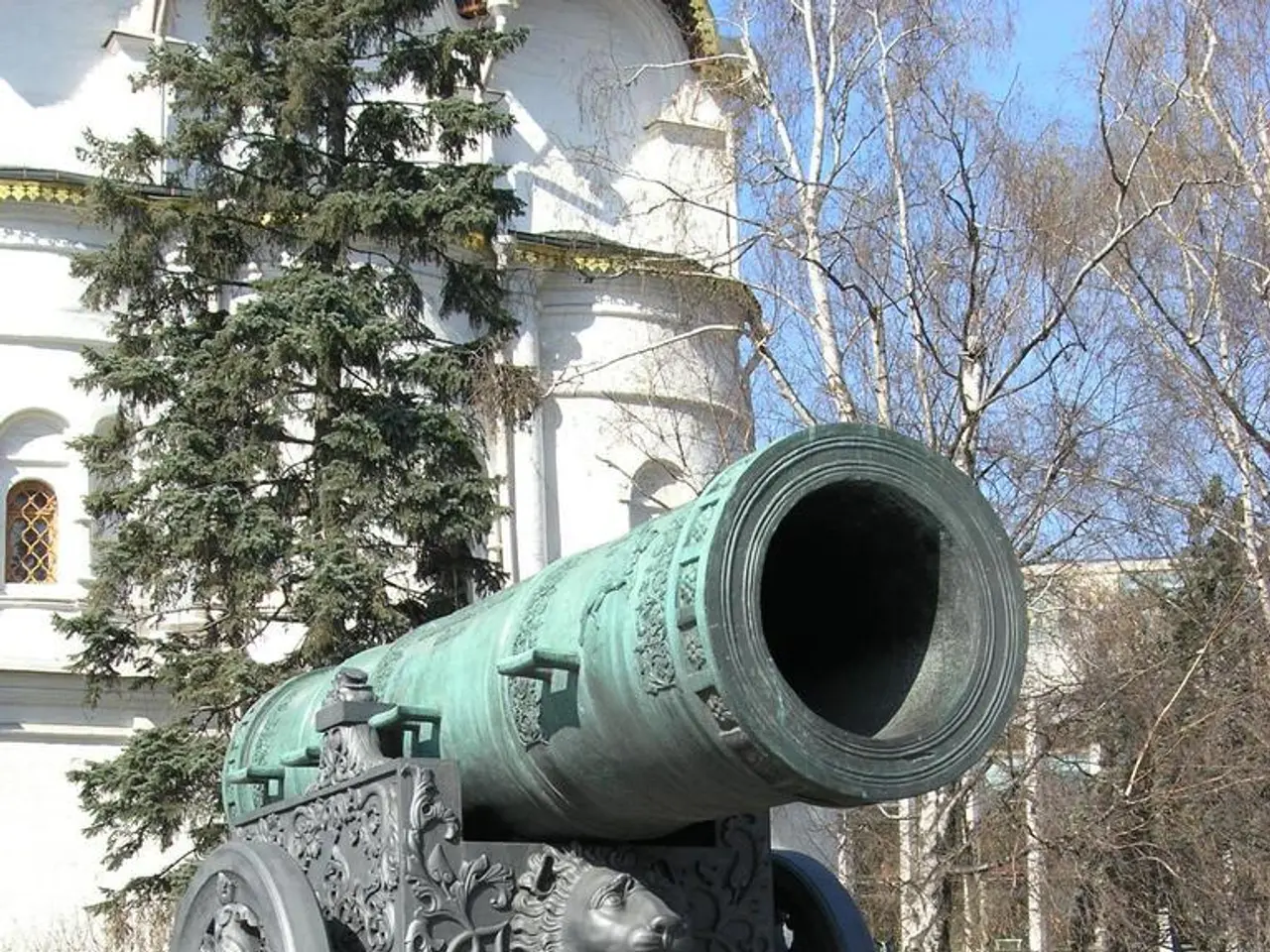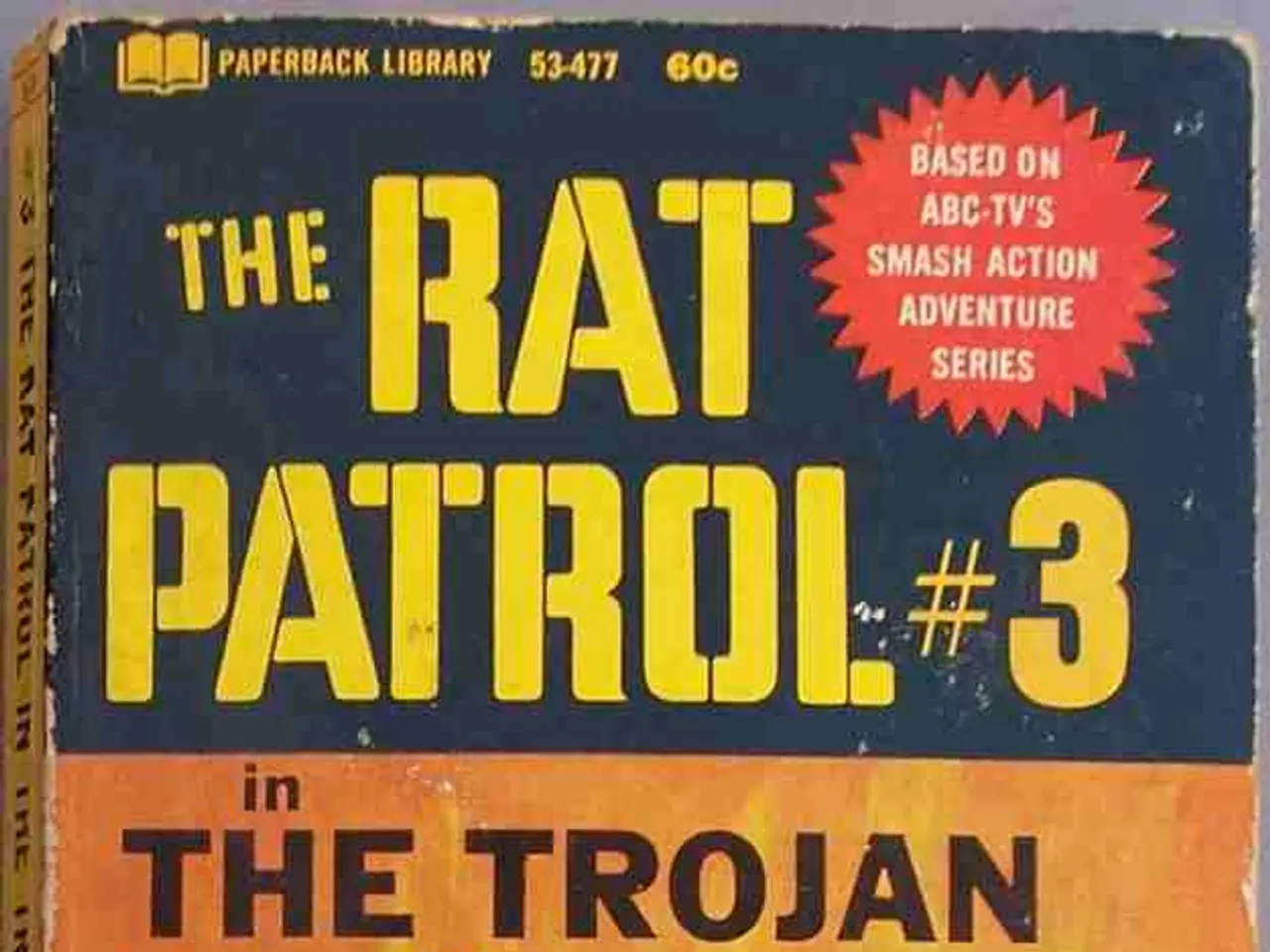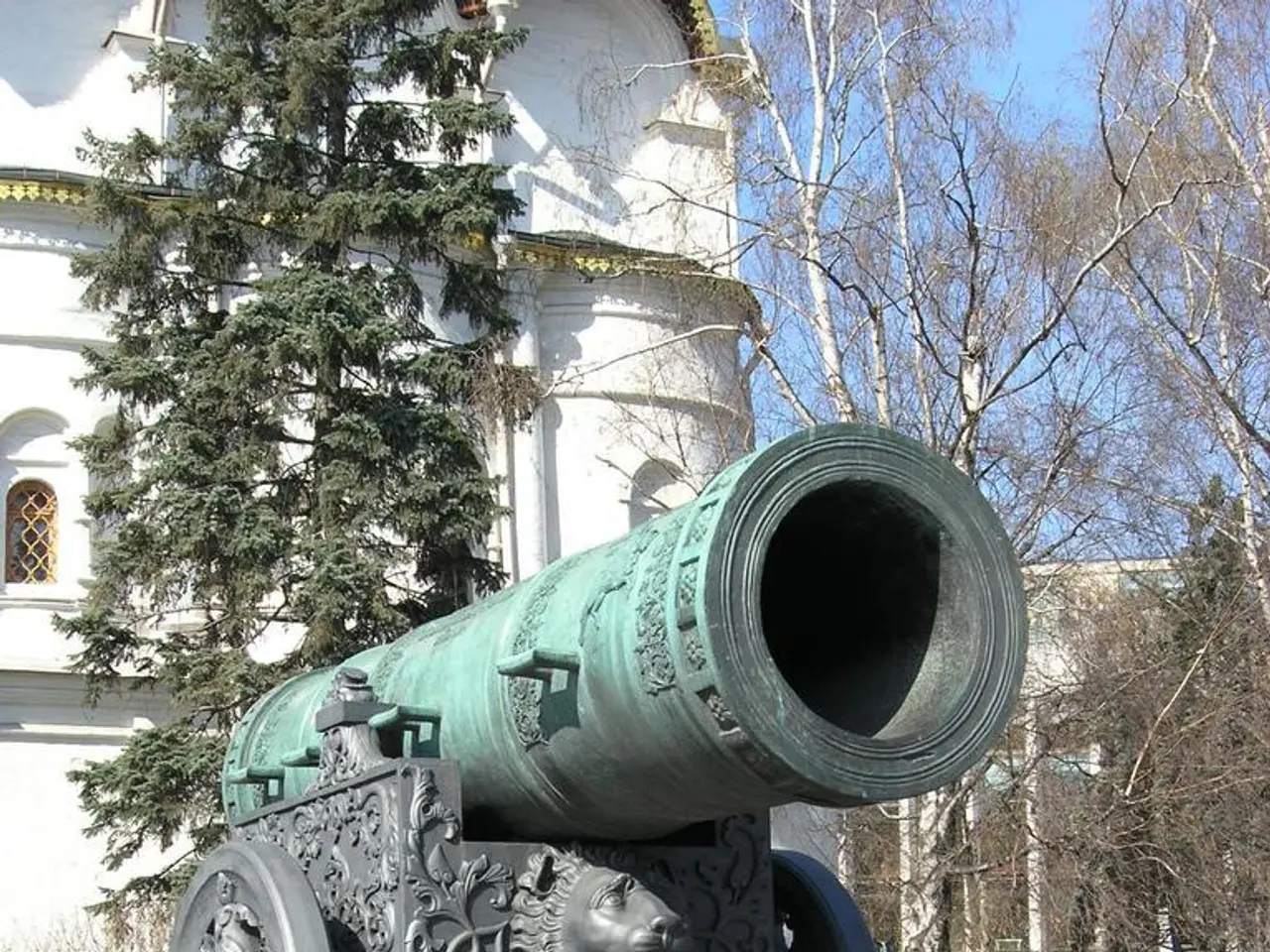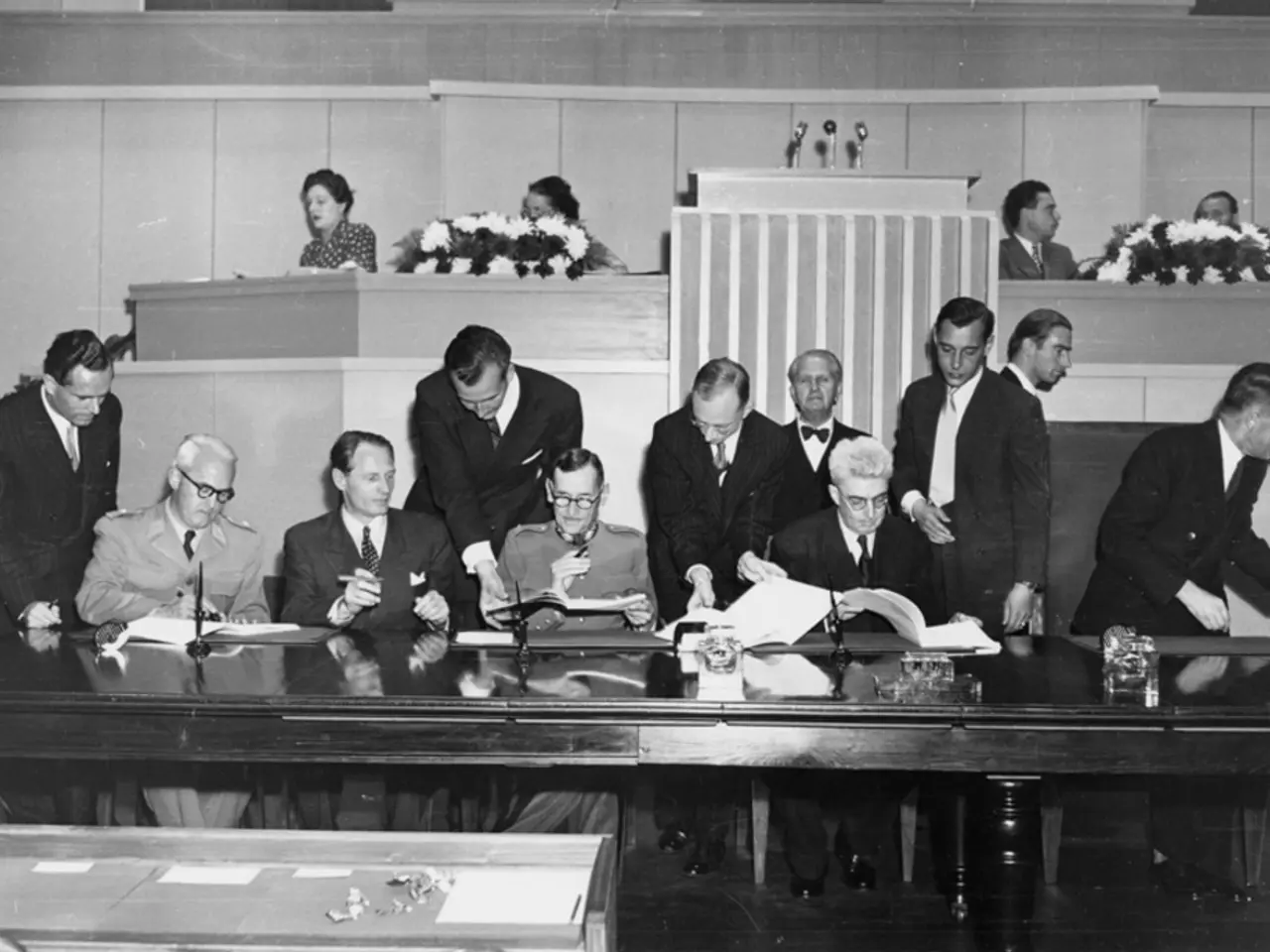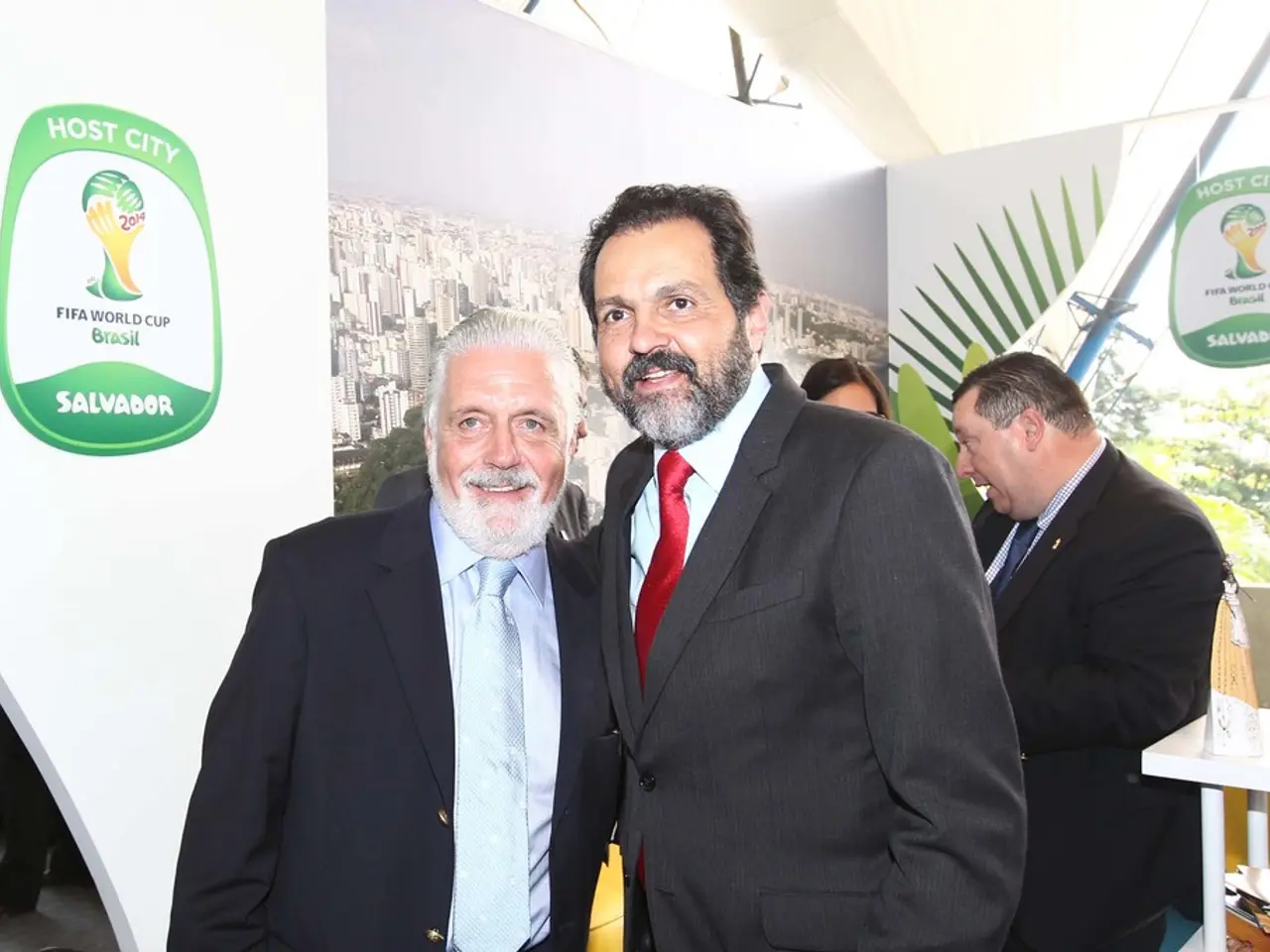Russian attacks prove deadly in intense bombardments of Kharkiv and Zaporizhzhia regions, claiming at least five lives
In the ongoing conflict between Russia and Ukraine, the past few days have seen a series of intense attacks and ceasefire negotiations.
Russia has carried out numerous strikes in various regions of Ukraine, including the Zaporizhzhia region where at least four people were killed and three injured. The city of Lozova in the Kharkiv region was also targeted, resulting in one fatality. Overnight, missile and drone strikes were reported in Kharkiv, Zaporizhzhia, Odesa, and Sumy regions, causing significant damage to critical infrastructure and residential areas.
The most intense attack on Lozova since the beginning of Russia's full-scale invasion in early 2022 saw a ballistic missile and nearly 50 UAVs being launched against Ukraine, according to Ukrainian President Volodymyr Zelenskyy.
As the conflict continues, both sides are actively engaged in ceasefire negotiations. However, a concrete agreement has yet to be reached. The key sticking points are Russia's demands for significant territorial concessions and Ukraine's refusal to cede occupied territory.
Ukraine, represented by President Zelensky, has expressed a willingness to meet with Russian President Vladimir Putin and former U.S. President Trump to commit to a ceasefire and prioritize stopping casualties and achieving lasting peace. However, Russia appears to be demanding the full cession of Donetsk, Luhansk, Zaporizhzhia, Kherson, and Crimea regions as conditions for any ceasefire.
In an effort to contribute to peace, U.S. officials have increased pressure on Russian President Vladimir Putin, and Trump's special envoy Steve Witkoff is scheduled to travel to Russia. President Zelenskyy has also stated that pressure must be increased to contribute to peace.
Despite the initiation of ceasefire talks following a communication between Putin and Trump, the Kremlin shows little incentive to halt its military offensives unless Ukraine agrees to Russia’s maximalist demands. Analysts and sources indicate it is unclear whether Russia intends to maintain its current occupied territories or eventually withdraw from some regions during the negotiations.
Experts widely assess that any future ceasefire or peace agreement might be violated by Russia and hostilities could resume. Therefore, a ceasefire is considered a necessary step in the negotiation process because peace talks are difficult under ongoing attacks.
As the situation remains complex and uncertain, both sides continue to strive for a resolution that prioritizes peace and the safety of its citizens.
War-and-conflicts continue to dominate general-news as politics play a significant role in the ongoing Russia-Ukraine conflict, with both sides actively engaged in ceasefire negotiations. Despite ceasefire talks, Russia's demands for significant territorial concessions, particularly the full cession of Donetsk, Luhansk, Zaporizhzhia, Kherson, and Crimea regions, have yet to be met by Ukraine, causing uncertainty in the negotiation process.
